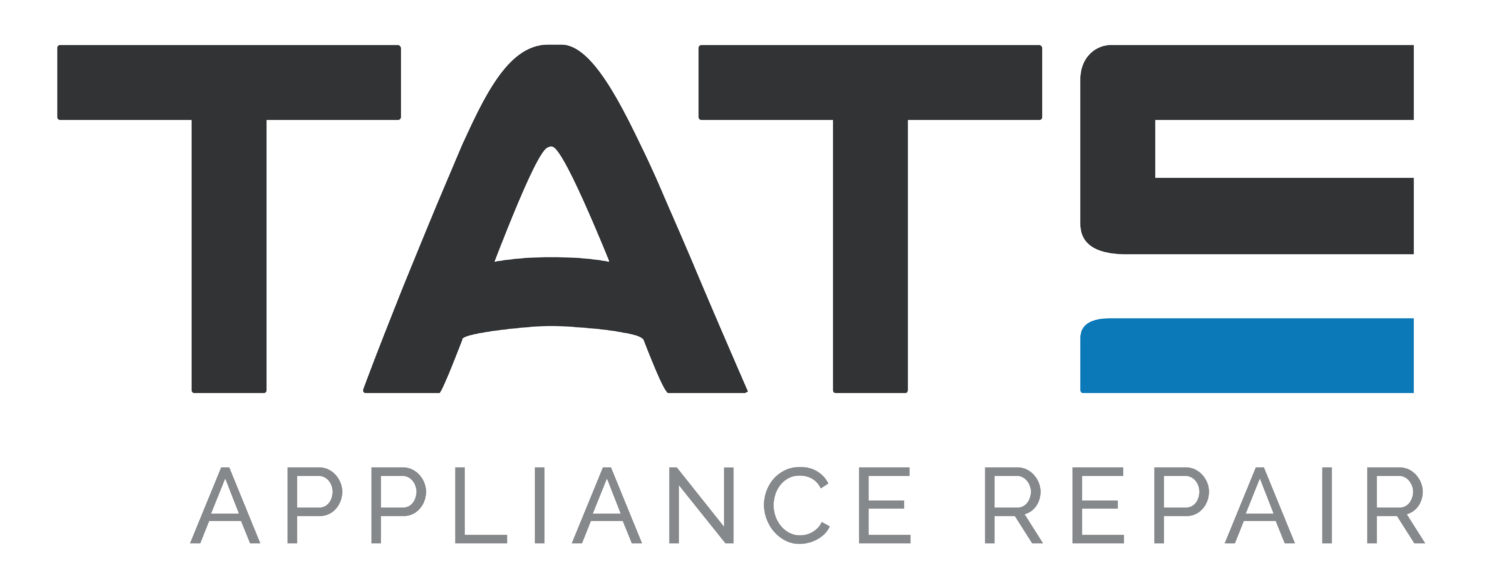Appliance Safety Tips
The appliances inside of your house can make life much easier, but if you operate household appliances unsafely, they might produce significant risks. You will want to care for your appliances and make sure they will not become hazards by adhering to these helpful appliance safety recommendations from Tate Appliance Repair.
The professional tips in this article will help to prevent fires and injuries related to broken kitchen appliances. That being said, hazards can still occur. In the event an appliance has issues or malfunctions and becomes a danger, call a professional appliance repair.
GFCI Outlets in Damp Locations
Kitchens, laundry rooms, basements, bathrooms, garages and outdoor areas can be susceptible to dampness or dripping water. As you well know, electricity and water don’t go together, that means electrical cords should be plugged into ground-fault circuit interrupters (GFCIs).
This prevents electrocution by tripping the circuit when any imbalances in electricity are detected.
If you do not have GFCI outlets installed in wet areas inside of your home, it’s time to install them or call an electrician in CITY. Once that is done, for safety measures, follow the warnings of appliance manuals that indicate an appliance is not designed for outdoor use.
Electrical Wires, Electronics & Outlets Far Away From Wet Areas
Quite a few appliances are manufactured for the outdoors, such as barbecue grills, for example. If you have electrical appliances outdoors – including dishwashers, refrigerators, freezers and ice makers, electric tools and more – ensure that all of the outlets and cords are not wet. Using weatherproof electronics will help, as do GFCI outlets with gaskets that are water-tight.
Extension Cords are a Momentary Solution
An extension cord poses many evident risks, this includes:
The chance for loose connections that could create sparks and start a fire.
The likelihood of power inconsistencies that can damage the appliance.
Greater vulnerability to water penetration that could lead to electrocution.
The probability of cords overheating and becoming a fire hazard when an low-quality extension cord is paired with a high-power appliance.
When deciding on an extension cord for short-term use, ensure it is the appropriate gauge for the appliance in question. The lower the gauge, the greater the cord size. For instance, a simple electrical extension cord for a radio may have a 16-gauge cord while a big cord for a air conditioner uses a 12-gauge wire.
Length is also important. The longer the cord is, the more electricity is used up on the way, this is known as voltage drop. Shorter extension cords are good for electric tools and similar equipment.
Read the Manual for Any Appliance You Buy
It is easy to assume that you know how to use your new washing machine or dishwasher without reading the manual, but consulting the guidelines is important for a lot of reasons:
You should find out if your home’s wiring is sufficient to support the new appliance. You may have to install a new circuit to prevent overloading your current ones.
You learn about complicated features you might not otherwise known.
You learn if the new appliance is safe for outdoor locations or not.
You don’t have the extreme stress that can come from trying to start a new home appliance without instructions!
Unplug Small Appliances if You Aren’t Using Them
You can stop unnecessary energy consumption by unplugging appliances when you aren’t using them. This is because small appliances sometimes include LED signals, clocks and other features while in standby times.
Unplug monitors, TVs, modems, printers, internet routers, video game consoles, phone chargers and more to cut back on wasteful energy consumption. But remember, it is a good idea to keep DVRs and similar items plugged in to not miss their automatic background features.
For extra tips on ways to use appliances safely, or to hire a local appliance repair service, please contact Tate Appliance Repair. We can fix all name brand household appliances!
OTHER RESOURCES:
Appliance Repair Cost
DIY Appliance Repair Tips
Repair or Replace Appliances
Refrigerator Parts
Home Services Campaign Disclaimer: This site is a free service to assist homeowners in connecting with local service providers. All contractors/providers are independent and this site does not warrant or guarantee any work performed. It is the responsibility of the homeowner to verify that the hired contractor furnishes the necessary license and insurance required for the work being performed. All persons depicted in a photo or video are actors or models and not contractors listed on this site.
Copyright ©2025 Tate Appliance Repair
